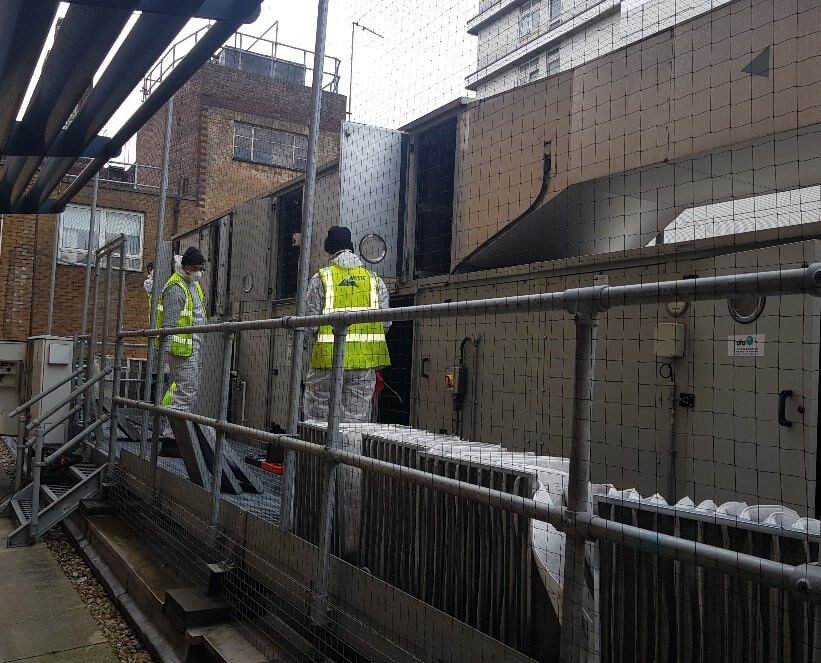
The Government are sending daily updates and advice which are continuously changing as we learn more about the coronavirus (COVID-19) pandemic. But we still continue to hear various claims from the media regarding HVAC plant. What is correct and what should we believe?
Claim
It has been claimed that “the coronavirus could be spread by air conditioning systems”.
Early research shows that the primary transmission of the virus is person to person. Public Health England says that it is “mainly passed through respiratory droplets generated by coughing and sneezing, and through contact with contaminated surfaces. The predominant modes of transmission are assumed to be droplet and contact.”, however information is also emerging rapidly about how coronavirus can be spread around buildings leading indoor air quality (IAQ) experts to agree on the need for more proactive measures to tackle airborne contaminants and to manage airflows.
Prevention
Through handwashing for at least 20 seconds using hot water and soap, along with strict social distancing requirements this is still the best way to prevent the spread of the virus. However, is this enough in large multiple use buildings, especially if your building now has a minimum workforce in place following a ‘working from home’ policy.
Artic have put together some information for your consideration in regard to the heating, ventilation and air conditioning systems within you building for this unprecedented times but also for you to consider in the future when we resume normality within the workplace.
Ventilation and Air Conditioning
It is recommended that any ventilation or air conditioning system that normally runs with a recirculation mode should be set up to run on full fresh air to dilute and reduce any possible contamination inside your building.
The general advice for now, is to supply as much outside air as reasonably possible. In buildings without mechanical ventilation, window airing can be used to boost ventilation. If in your building the number of employees has reduced, do not concentrate the remaining employees in smaller areas but maintain or enlarge the spacing among them in order to enhance the ventilation cleaning effect.
Airborne contaminants can be minimised by correct filtration, regular plant maintenance and, where appropriate, cleaning of ventilation systems. We now have evidence that microbial contaminants will grow on filters in 14 days, these either need to be tackled by more regular filter changes or by increased cleaning.
Toilet Facilities
Initial research has identified the presence of COVID-19 virus in the stools of confirmed cases. Exhaust ventilation systems of toilets should always be kept on 24/7, to make sure that negative pressure is created, especially to minimise the possibility of faecal-oral transmission. Do not open windows in toilets with passive stack or mechanical exhaust systems. This may cause a contaminated airflow from the toilet to other rooms, where, essentially, ventilation begins to work in the reverse direction.
Air Handling Units
Sometimes air handling units and recirculation sections are equipped with return air filters. When possible, decentralised systems such as fan coil units that use local recirculation, should be turned off to avoid resuspension of virus particles at room level. Fan coil units have coarse filters which practically would not filter out particles as small as viruses. If not possible to turn off, these units are to be included into cleaning schedules, because they might collect particles as any other surface in the room. From the filter replacement perspective, normal maintenance procedures can be used.
If you require any guidance or services from Artic during this period, please get in touch with one of the team. We want to keep you compliant and risk free and are here to support throughout this crucial period.
Share This Story!
If you're looking to partner with Artic Building, then please complete the Working With Artic form here.
Do you have an upcoming project or tender? Then please complete the form below.

